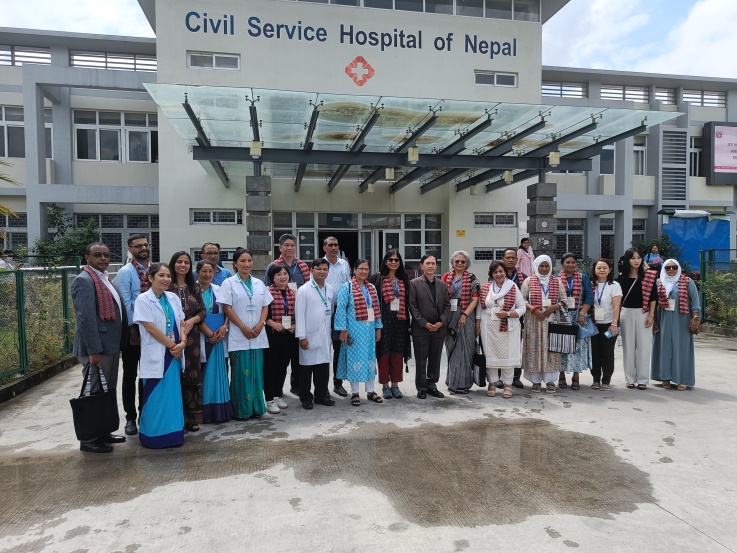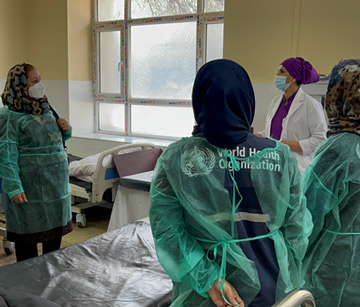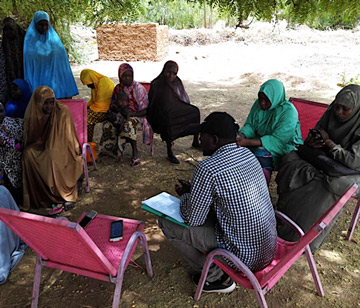Helping to improve access to quality family planning services in countries worldwide
The WHO Family Planning “Accelerator project”
Contraception and family planning are essential to the health and human rights of all individuals worldwide. Access to a choice of safe, affordable, acceptable contraceptive options, helps all individuals safeguard their human right to bodily autonomy, and decide if, how many and when to have children. The World Health Organization (WHO) therefore works worldwide with partners to help ensure access for women in all their diversity, to quality family planning services, and to address unmet need for contraception. This work has included the WHO Family Planning Accelerator project an initiative established in 2019 and concluded in 2022, to help improve access to quality family planning services based on human rights principles.
Through the project, 14 countries have received specialised technical and financial support, to implement evidence based high impact practices in family planning; improve availability of safe and effective methods of contraception; and to strengthen access to quality, rights-based family planning services. These countries are Afghanistan, Pakistan, India, Myanmar, Nepal and Timor Leste, Democratic Republic of Congo (DRC), Guinea, Kenya, Madagascar, Mali, Niger, Nigeria, and Tanzania.
History and purpose
In 2015, WHO supported over 90 WHO Member States to update evidence-based recommendations on family planning under a project named the “WHO FP Umbrella project”. Following this, in 2019, the “family planning accellerator project” was established to support partners and Ministries of Health to accelerate quality and rights-based family planning services within the broader framework of Sustainable Development Goals, Universal health Coverage, and the WHO 13th global programme of work. It contributes specifically to attainment of Sustainable Development Goal targets 3.1, 3.7 and 5.6, and to the WHO goal of 1 billion more people covered with Universal Health Coverage.
How the programme worked
Technical support was given to the 14 identified countries, using four key approaches: (1) Technical assistance coordination mechanism focusing on strengthening Adolescent and Youth Sexual and Reproductive Health; (2) Partnership with academia, professional organizations, other United Nations bodies to support the dissemination of WHO guidelines on contraception and family planning; (3) strengthening country leadership in family planning; and (4) South-South Learning exchange to support policy makers and programmers to implement evidence based practices in family planning.
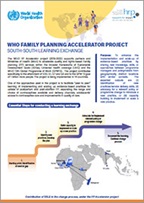
Brief: WHO Family Planning Accelerator Project
Case studies
Newsletters
All →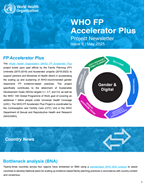
The WHO FP Accelerator Plus project builds upon past efforts by the Family Planning (FP) Umbrella (2015-2018) and Accelerator projects (2019-2022) to...
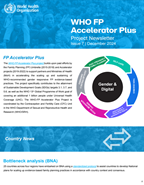
WHO FP Accelerator Plus - Project Newsletter - Issue 7
The WHO FP Accelerator Plus project builds upon past efforts by the Family Planning (FP) Umbrella (2015-2018) and Accelerator projects (2019-2022) to...
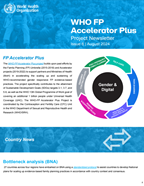
WHO FP Accelerator Plus - Project Newsletter - Issue 6
The WHO FP Accelerator Plus project builds upon past efforts by the Family Planning (FP) Umbrella (2015-2018) and Accelerator projects (2019-2022) to...

